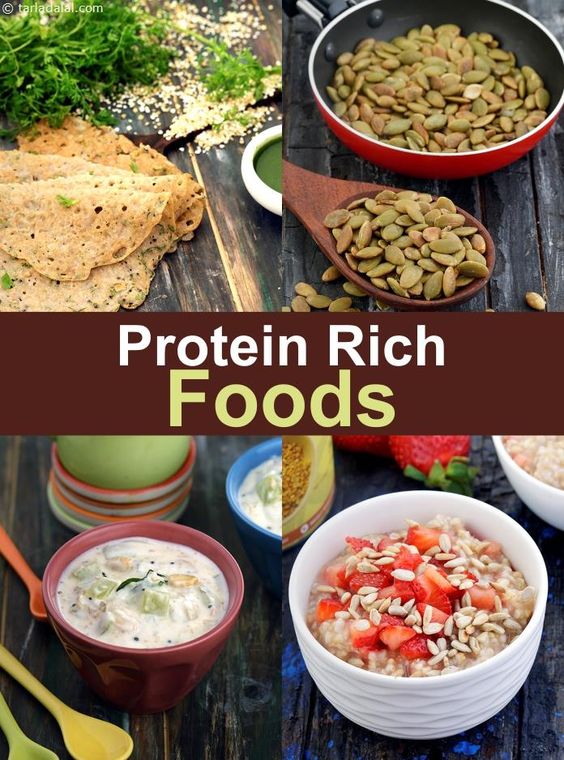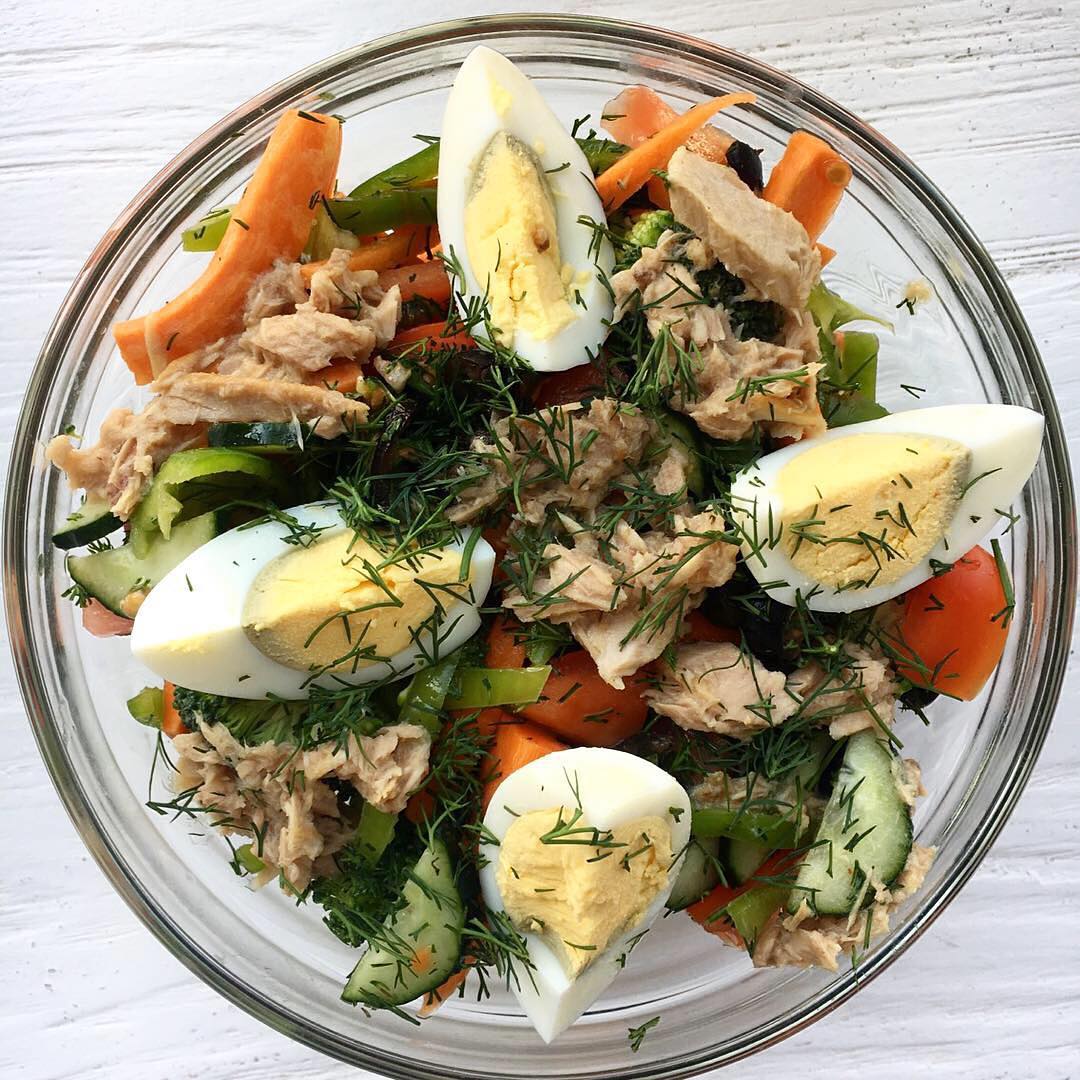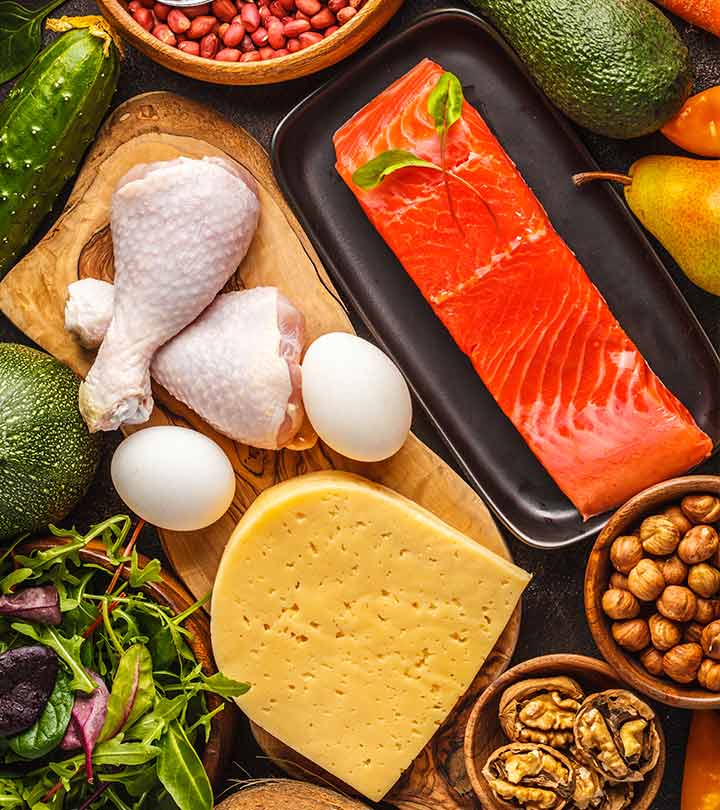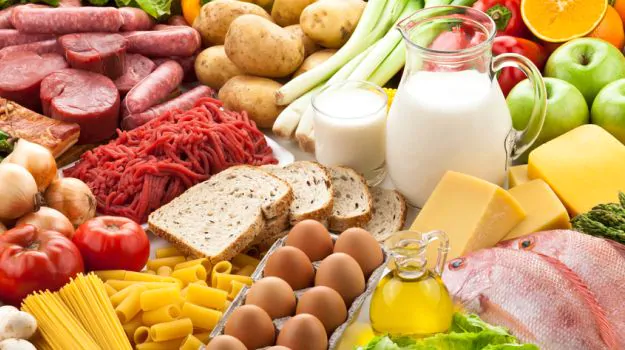
Source:- Pinterest
Protein is essential for our body to work well and to make and improve our body cells. It is also a very essential nutrient for the nourishment of our body. Together, protein is the source of our body’s energy (calories). So, today in this article, I am going to provide you a protein-rich Indian foods list that you must add to your grocery list to improve your health in a natural way.
NOTE:
This is the second nutrient found in very high quantities in our body after water.
What Is Protein?
Protein is a type of organic substance that is formed in conjunction with carbon, hydrogen, nitrogen and oxygen molecules. According to its chemical composition, it is divided into three categories.
The 1st simple protein that is made of amino acids.
The 2nd joint protein, which is formed with some amino acid molecules.
The 3rd is a derived protein that comes from the dissolution of simple and combined proteins.

Source:- Instagram
How Much Protein Should We Consume Per Day?
1 gram of protein contains 4 calories. So, be careful with your consumption of protein, as with protein,n our body receives calories too. However, As per the Recommended Daily Allowances:
INFANT-CHILD
- Infants of the age group more than 6 months should consume 10 grams of protein /day
- The child of the 9-13-year age group should consume around 19-34 grams of protein /day
MEN
- Men aged between 14-18 should take around 50 grams of protein /day
- Men aged between 19-50 years should take around 52 grams of protein /day
WOMEN
- Women aged between 14-18 years should take around 46 grams of protein /day
- Women aged between 19-50 years should take around 46 grams of protein /day
TIPS:
The pregnant woman should take around 71 grams of protein/day

List of Protein Rich Indian Foods
Before consuming protein rich Indian foods, it is very important for us to know key element; means in which food there are plenty of protein available. So let’s know the protein rich Indian foods’ both vegetarian and non-vegetarian source:
Dairy Products:
- Milk
- Cottage Cheese (Paneer)
- Curd
Non-Vegetarian Products:
- Fish
- Shrimp
- Mutton
- Chicken
- Eggs
Vegetables:
- Peas
- Potatoes
- Ginger
- Garlic
- Pumpkin Seeds
- Broccoli
- Asparagus
- Spinach
Grains:
- Beans (Rajma)
- Lentils
- Wheat
- Soybeans
- Maize
- Black Chana
- Chickpeas
Dry Fruits:
- Almonds
- Peanuts
- Pistachios
- Walnut
- Cashew nuts
- Raisins
Fruits:
- Berries
- Pomegranate
- Lemons
- Coconut
- Guava
- Apples
Others:
- Celery
- Oatmeal
- Oats

Protein Rich Indian Foods In Details:
Here’s a comparison table of the protein content for various foods per 100 grams:
| Food Item | Protein Content (g/100g) |
|---|---|
| Chicken (Cooked) | 31g |
| Mutton (Cooked) | 25g |
| Egg | 13g |
| Fish (Salmon, Cooked) | 22g |
| Yogurt (Plain, Low-fat) | 10g |
| Milk (Whole) | 3.3g |
| Vegetables (Mixed) | 2-3g |
| Rajma (Kidney Beans, Cooked) | 8g |
| Soybean (Cooked) | 17g |
| Dry Fruits (Almonds) | 21g |
| Lentils (Cooked) | 9g |
| Paneer (Cottage Cheese) | 18g |
Chicken
Chicken contains a very high amount of protein, which is very important for the body’s development as well as for the body’s muscles. Chicken is beneficial for those who want to develop muscles.
Mutton
It is a food filled with various elements. If you are consuming mutton regularly then this will not reduce the protein in your body and you will be healthy. However, too much consumption of mutton can cause harm to your body. So, be very careful regarding your consumption of mutton.
Egg
The egg is considered a good source of protein, calcium and omega-3 fatty acids. All of these nutrients are very important for the body. Protein strengthens our muscles. Omega-3 fatty acids produce good cholesterol in the body. Apart from this, calcium presents in eggs help to strengthen teeth and bones.
Fish
Fish have low fat and very high amounts of protein, omega-3 fatty acids. Fish are very beneficial for health. There are various types of vitamins, minerals and many other nutrients present in the fish. So fish consumption provides many benefits to the body.
Yogurt
Yogurt is the best means of protein. Consuming yogurt on a daily basis, we can get a healthy and strong body. Yogurt enhances human life. Yogurt is very effective in completing every deficiency of protein.
Milk
Milk contains sufficient amounts of protein. Starting the day with a glass of hot milk, the body remains energetic throughout the day.
Vegetable
The body needs protein. Every time the question arises, what foods will get good and rich proteins? The answer is very simple… it is vegetables of course! There are some vegetables that contain plenty of proteins like peas, spinach, asparagus, mushrooms, cauliflower etc.
Rajma
Rajma contain high amounts of protein. For those who do not eat meat (non-veg), rajma is a good source of protein for them. By eating rajma with rice you can provide all the nutrients to your body.
Soybean
Soybean is a very beneficial food for our body’s nutrition and health. Soybean contains 33 percent protein, 22 percent fat, 21 percent carbohydrate, 12 percent moisture and 5 percent consume.
Dry Fruits
Protein in almond, pistachios, and walnuts is found in the appropriate amount. In addition, fiber is also found in abundance. Raisins contain both non-soluble and soluble fibers. The raisin gives energy to the body immediately.
Summary:
Pumpkin seeds, peanuts, pistachios, walnuts, chill goose, chia seeds have 7 grams of protein per serving. If you eat them regularly then it is of great benefit.
Budget-Friendly Protein Sources for Students:
For students on a budget, finding protein-rich foods that are both affordable and nutritious is key. Here are some budget-friendly protein sources:
1. Eggs:
Protein per 100g: 13g
Eggs are an excellent and affordable source of protein. They are versatile and can be boiled, scrambled, or used in various dishes.
2. Lentils:
Protein per 100g (Cooked): 9g
Lentils are a great plant-based protein source and are very affordable. You can buy them in bulk and use them in soups, curries, or salads.
3. Chickpeas:
Protein per 100g (Cooked): 9g
Chickpeas are another great legume option. They can be used in curries, stews, or even roasted as a snack.
4. Tofu:
Protein per 100g: 8g
Tofu is made from soybeans and is a high-protein option that’s affordable and versatile. You can stir-fry it, add it to soups, or use it as a meat substitute.
5. Peanut Butter:
Protein per 100g: 25g
Peanut butter is a great, affordable source of protein. While it’s calorie-dense, it can be spread on toast, added to smoothies, or eaten with fruits like apples.
6. Cottage Cheese (Paneer):
Protein per 100g: 18g
Paneer can be homemade or store-bought, and it’s a high-protein food. It’s especially affordable if made at home.
7. Rajma (Kidney Beans):
Protein per 100g (Cooked): 8g
Kidney beans are rich in protein and can be used in a variety of dishes like curries or salads.
8. Soybeans:
Protein per 100g (Cooked): 17g
Soybeans are one of the highest plant-based protein sources. You can find them dried, and they are relatively cheap when purchased in bulk.
9. Oats:
Protein per 100g: 16g
Oats are not just for breakfast! They offer a decent amount of protein and can be used in smoothies, baked goods, or savory dishes.
10. Rice and Beans:
Protein per 100g (Cooked): 7g (combined)
When combined, rice and beans form a complete protein. This is an inexpensive, filling, and highly nutritious meal option.
11. Greek Yogurt (Plain):
Protein per 100g: 10g
Greek yogurt is more protein-dense than regular yogurt and can be eaten on its own or added to smoothies, parfaits, or salads.
12. Sunflower Seeds:
Protein per 100g: 21g
Sunflower seeds are affordable and packed with protein. They can be added to salads, smoothies, or eaten as a snack.
13. Canned Tuna:
Protein per 100g: 23g
Canned tuna is an economical source of protein, especially when bought in bulk. It’s great for sandwiches, salads, or pasta dishes.
14. Quinoa:
Protein per 100g (Cooked): 4g
Quinoa is a complete protein source and can be used as a base for meals, mixed with vegetables, or added to soups.
15. Seitan:
Protein per 100g: 25g
Seitan is a wheat gluten product that’s rich in protein. It’s a little harder to find but can be affordable if purchased in bulk or made at home.
Reference Link:
- 15 High-Protein Indian Foods, Benefits, and Ideal Diet
- Top 10 Protein Rich Indian Foods for a Healthier You
- Top 10 Protein Foods in India
- Top 11 Indian Vegetarian Protein Sources
- 25 Protein Rich Foods for Vegetarians